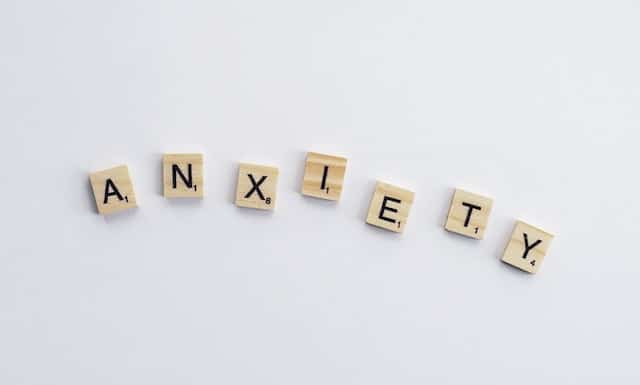
Anxiety is a feeling of fear, worry, or unease. It can be mild or severe and may be accompanied by physical symptoms such as a racing heart, shortness of breath, or dizziness. For some people, anxiety is so constant that it significantly impacts their quality of life. If you are struggling with anxiety, don’t despair. There are many things you can do to cope with this condition. This blog post will discuss what anxiety is, the different types of anxiety disorders, and some strategies for managing your symptoms.
Understand What Anxiety Is
Anxiety is an emotion characterized by feelings of apprehension, worry, and fear. It can range from mild to severe and can be triggered by a number of different factors. There are several types of anxiety disorders that vary in severity and intensity. Therefore, it is essential to understand the nuances of anxiety in order to manage it better.
At its core, anxiety is a natural response to stress or fear. It is an adaptive reaction that helps us prepare for potential danger or difficult situations. When faced with a perceived threat, our bodies activate the “fight-or-flight” response, which causes physical symptoms such as increased heart rate, shallow breathing, sweating, and muscle tension. These reactions help us become more alert and give us the energy to either confront or escape from the situation at hand.
However, when anxiety becomes excessive or uncontrolled, it can lead to serious complications like difficulty concentrating, insomnia, irritability, and fatigue. Anxiety can also manifest in physical health concerns such as headaches and stomach issues, as well as psychological issues like depression and suicidal thoughts.
Different types of anxiety disorders
There are different types of anxiety disorders, including generalized anxiety disorder (GAD), panic disorder (PD), social phobia (SP), obsessive-compulsive disorder (OCD), post-traumatic stress disorder (PTSD), and specific phobias (such as fear of flying or heights). Each type has its own set of symptoms, but all revolve around feeling overwhelmed by fear or anxiousness about certain people, places, or situations.
GAD is marked by excessive worrying and fear over everyday activities and concerns. Panic disorder involves sudden, intense episodes of fear and physical symptoms such as shaking, shortness of breath, chest pain, or dizziness. Social phobia is characterized by an intense fear of being judged or embarrassed in social situations. OCD is defined by recurring intrusive thoughts that cause anxiety and lead to compulsions such as hand-washing or counting
Strategies for Managing Anxiety
Anxiety can be an incredibly difficult condition to live with, and it’s essential to develop effective strategies for managing it. There are a variety of techniques that can be used to reduce anxiety symptoms and improve well-being.
One of the first steps is to identify triggers so that people can avoid them or manage them better. Common triggers include certain places, people, or events, but they can vary from person to person. Identifying triggers is important because it allows individuals to prepare themselves to cope better when faced with these stressors.
Another way to manage anxiety is by using breathing exercises, meditation, and mindfulness techniques. These practices create a sense of calmness in the body by focusing on slow, deep breaths rather than shallow ones, which can increase feelings of panic. Mindful activities such as yoga or tai chi are also helpful in reducing stress levels by allowing individuals to focus on the present moment rather than worrying about the future.
Regular exercise has been found to be beneficial for reducing anxiety symptoms as well. Physical activity stimulates the release of endorphins – hormones that make us feel good and relaxed – which helps counterbalance some of the symptoms associated with anxiety, such as racing thoughts or feeling overwhelmed. Exercise should not be too intense, however, as this could have the opposite effect and exacerbate anxiety levels instead.
Engaging in activities like journaling or creative endeavors such as painting or music-making can also help reduce stress levels and provide a form of distraction from worrisome thoughts. This gives individuals an outlet for their emotions instead of bottling them up inside, enabling them to process their feelings in a healthy way and gain clarity on how they want to move forward.
Finally, seeking professional help such as therapy or medication may be necessary depending on individual circumstances. For example, working with a counselor or therapist will provide support for uncovering underlying issues related to anxiety. At the same time, medication prescribed by a doctor could assist in treating severe cases more effectively if needed.
Signs you need professional help with your anxiety.
Anxiety is a common mental health condition that affects many people, and it can take a toll on physical and emotional well-being. While there are strategies for managing anxiety symptoms, sometimes professional help is needed for more severe cases. When someone’s anxiety begins to impact their ability to function in their daily life, it may be time to seek out a mental health specialist before someone overdoses on Xanax. Here are some signs that indicate you need professional help with your anxiety.
Difficulty controlling worrying thoughts
Most people experience anxious thoughts at times, but if they become frequent and difficult to manage, then it could be an indication of an underlying issue. If the anxiety is getting in the way of daily activities or causing significant distress, then seeking out help from a therapist can be beneficial.
Avoiding activities or situations due to fear or worry
People with severe anxiety often find themselves avoiding certain activities or places due to fear or worry. This can include anything from attending social events or going shopping to avoiding public spaces where there will be lots of people around. If this behavior is impacting your life in a negative way, then professional help may be necessary.
Having physical symptoms related to anxiety
Anxiety can manifest itself as physical symptoms such as nervousness, sweating, trembling, and chest pain. These sensations can be so intense that they interfere with normal functioning on a day-to-day basis. If these symptoms are not under control despite trying various coping mechanisms such as breathing exercises or relaxation techniques, then seeking medical assistance might be beneficial.
Experiencing panic attacks
Panic attacks involve the sudden onset of intense fear accompanied by physical symptoms such as chest pain and difficulty breathing. They can last anywhere from several minutes up to half an hour and usually occur without warning. However, suppose panic attacks become frequent and difficult to manage on your own. In that case, talking with a mental health professional may be beneficial in learning how to cope better with these episodes.
Feeling overwhelmed by fatigue or exhaustion.
Anxiety can cause extreme fatigue due to all the energy being devoted to managing anxious thoughts and trying not to engage in behaviors associated with the disorder (i.e., avoiding certain activities). This exhaustion can lead to feelings of being overwhelmed, making it hard for individuals to focus on tasks or have meaningful interactions with others, resulting in further isolation, which only exacerbates the problem even more so than before. Seeking professional help, in this case, helps provide support for developing healthier coping mechanisms that do not drain one’s energy resources so heavily as those mentioned above may do when taken too far beyond reasonable levels of usage for oneself.
Professional help for anxiety issues involves working with therapists who specialize in cognitive behavioral therapy (CBT), which focuses on identifying patterns of thought and behavior that lead to increased stress levels so that alternate methods of addressing these issues can be explored instead, leading toward better management overall while also improving the overall quality of life over time through practice and repetition!
By understanding the causes and developing effective strategies for managing anxiety, individuals will be able to lead healthier lives despite struggling with this condition. It’s important, however, not just to focus on reducing symptoms but also on increasing resilience through self-care practices so that people are better equipped with coping mechanisms when faced with stressful situations in the future.



